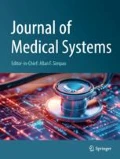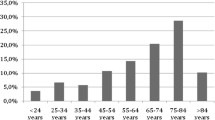Abstract
Despite being a potential cause of morbidity and economic costs, adverse events remain insufficiently studied. Therefore, we aimed to assess the frequency and impact of adverse events among inpatients. We analysed an administrative database containing a registration of all hospitalisations occurring in Portuguese public hospitals between 2000 and 2015. We identified all episodes with a registration of adverse events, and classified them into three categories, namely (1) misadventures of surgical and medical care, (2) complications of surgical or medical procedures, and (3) adverse drug events (including adverse drug reactions, poisoning events, and late effects). These episodes were compared over their length of stay, in-hospital mortality, and hospital costs with an equal number of hospitalisations matched for patients’ and episodes’ characteristics. Between 2000 and 2015, 5.8% (n = 861,372) of all Portuguese hospitalisations had a registration of at least one adverse event. Hospitalisations with registration of adverse events had a median length of stay of 8 days, median hospitalisation costs of 3060.7 Euro, and an in-hospital mortality of 6.7%. Hospitalisations with registration of misadventures of care, complications of procedures and adverse drug reactions had significantly higher lengths of stay and hospitalisation costs than their matched controls. In-hospital mortality was significantly higher for episodes of misadventures of care and complications of procedures, but lower for adverse drug events hospitalisations. Therefore, adverse events are common among inpatients, and have an important clinical and economic impact. Administrative databases may be useful in their epidemiological assessment.


Similar content being viewed by others
References
Kohn, L.T., Corrigan, J., and Donaldson, M.S., To err is human : Building a safer health system. National Academy Press, Washington, D.C., 2000.
Barach, P., Johnson, J.K., Ahmad, A., Galvan, C., Bognar, A., Duncan, R., Starr, J.P., and Bacha, E.A., A prospective observational study of human factors, adverse events, and patient outcomes in surgery for pediatric cardiac disease. J. Thorac. Cardiovasc. Surg. 136(6):1422–1428, 2008. https://doi.org/10.1016/j.jtcvs.2008.03.071.
Vincent, C., Neale, G., and Woloshynowych, M., Adverse events in British hospitals: Preliminary retrospective record review. Bmj. 322(7285):517–519, 2001.
Ehsani, J.P., Jackson, T., and Duckett, S.J., The incidence and cost of adverse events in Victorian hospitals 2003-04. Medical. J. Aust. 184(11):551–555, 2006.
Goodman, J.C., Villarreal, P., and Jones, B., The social cost of adverse medical events, and what we can do about it. Health. Aff. (Millwood). (4):590–595, 2011. https://doi.org/10.1377/hlthaff.2010.1256.
Greenstein, A.J., Wahed, A.S., Adeniji, A., Courcoulas, A.P., Dakin, G., Flum, D.R., Harrison, V., Mitchell, J.E., O'Rourke, R., Pomp, A., Pender, J., Ramanathan, R., and Wolfe, B.M., Prevalence of adverse intraoperative events during obesity surgery and their sequelae. J. Am. Coll. Surg. 215(2):271–277 e273, 2012. https://doi.org/10.1016/j.jamcollsurg.2012.03.008.
Roselli EE, Pettersson GB, Blackstone EH, Brizzio ME, Houghtaling PL, Hauck R, Burke JM, Lytle BW Adverse events during reoperative cardiac surgery: Frequency, characterization, and rescue. J. Thorac. Cardiovasc. Surg. 135 (2):316–323, 323 e311-316, 2008. https://doi.org/10.1016/j.jtcvs.2007.08.060
Classen, D.C., Pestotnik, S.L., Evans, R.S., Lloyd, J.F., and Burke, J.P., Adverse drug events in hospitalized patients. Excess length of stay, extra costs, and attributable mortality. Jama. 277(4):301–306, 1997.
Miguel, A., Azevedo, L.F., Lopes, F., Freitas, A., and Pereira, A.C., Methodologies for the detection of adverse drug reactions: Comparison of hospital databases, chart review and spontaneous reporting. Pharmacoepidemiol. Drug. Saf. 22(1):98–102, 2013. https://doi.org/10.1002/pds.3348.
Avery, A.J., Anderson, C., Bond, C.M., Fortnum, H., Gifford, A., Hannaford, P.C., Hazell, L., Krska, J., Lee, A.J., McLernon, D.J., Murphy, E., Shakir, S., and Watson, M.C., Evaluation of patient reporting of adverse drug reactions to the UK 'Yellow card Scheme': Literature review, descriptive and qualitative analyses, and questionnaire surveys. Health. Technol. Assess. 15(20):1–234, iii-iv, 2011. https://doi.org/10.3310/hta15200.
Miguel, A., Bernardo, M., Freitas, A., Lopes, F., Azevedo, L., and Pereira, A.C., Detection of adverse drug reactions using hospital databases-a nationwide study in Portugal. Pharmacoepidemiol. Drug. Saf. 22(8):907–913, 2013. https://doi.org/10.1002/pds.3468.
Marques B, Sousa-Pinto B, Silva-Costa T, Lopes F, Freitas A Detection of adverse events through hospital administrative data. In: World Conference on Information Systems and Technologies, Springer, pp 825–834, 2017.
Nebeker, J.R., Barach, P., and Samore, M.H., Clarifying adverse drug events: A clinician's guide to terminology, documentation, and reporting. Ann. Intern. Med. 140(10):795–801, 2004.
Bowie MJ Understanding ICD-9-CM Coding : A Worktext. Fourth Edition. edn. Cengage Learning, Boston, 2014.
Hougland, P., Xu, W., Pickard, S., Masheter, C., and Williams, S.D., Performance of international classification of diseases, 9th revision, clinical modification codes as an adverse drug event surveillance system. Med. Care. 44(7):629–636, 2006. https://doi.org/10.1097/01.mlr.0000215859.06051.77.
Bourgeois, F.T., Mandl, K.D., Valim, C., and Shannon, M.W., Pediatric adverse drug events in the outpatient setting: An 11-year national analysis. Pediatrics. 124(4):e744–e750, 2009. https://doi.org/10.1542/peds.2008-3505.
Sarkar, U., Lopez, A., Maselli, J.H., and Gonzales, R., Adverse drug events in U.S. adult ambulatory medical care. Health. Serv. Res. 46(5):1517–1533, 2011. https://doi.org/10.1111/j.1475-6773.2011.01269.x.
Utah Health Data Committee. Center for Health Data., Utah. Office of Health Care Statistics, Adverse events related to medical care, Utah: 1995–99. The Committee, Salt Lake City, Utah, 2001.
Morimoto, T., Gandhi, T.K., Seger, A.C., Hsieh, T.C., and Bates, D.W., Adverse drug events and medication errors: Detection and classification methods. Qual. Saf. Health. Care. 13(4):306–314, 2004. https://doi.org/10.1136/qhc.13.4.306.
Portal da Codificação Clínica e dos GDH [Clinical Coding and DRG platform, Portuguese Ministry of Health] Efeito adverso (Reacção adversa) [Adverse event (adverse reaction)]. http://portalcodgdh.min-saude.pt/index.php/Efeito_adverso_(Reac%C3%A7%C3%A3o_adversa). (last accessed: January 2018).
Quan, H., Sundararajan, V., Halfon, P., Fong, A., Burnand, B., Luthi, J.C., Saunders, L.D., Beck, C.A., Feasby, T.E., and Ghali, W.A., Coding algorithms for defining comorbidities in ICD-9-CM and ICD-10 administrative data. Med. Care. 43(11):1130–1139, 2005.
Ministério da Saúde. Portaria n.° 567/2006. Diário da República, 1ª série — N° 113 — 12 de Junho de 2006; June 2009. Available at: http://portalcodgdh.min-saude.pt/images/d/d7/Portaria_567-2006_de_12_Junho.pdf. Last accessed July 2017
Allue, N., Chiarello, P., Bernal Delgado, E., Castells, X., Giraldo, P., Martinez, N., Sarsanedas, E., and Cots, F., Assessing the economic impact of adverse events in Spanish hospitals by using administrative data. Gac. San. 28(1):48–54, 2014. https://doi.org/10.1016/j.gaceta.2013.06.004.
Freitas A, Lema I, da Costa-Pereira A Comorbidity coding trends in hospital administrative databases. In: New Advances in Information Systems and Technologies. Springer, pp 609–617, 2016
Brennan, T.A., Leape, L.L., Laird, N.M., Hebert, L., Localio, A.R., Lawthers, A.G., Newhouse, J.P., Weiler, P.C., and Hiatt, H.H., Incidence of adverse events and negligence in hospitalized patients. Results of the Harvard medical practice study I. N. Engl. J. Med. 324(6):370–376, 1991. https://doi.org/10.1056/NEJM199102073240604.
Thomas, E.J., Studdert, D.M., Burstin, H.R., Orav, E.J., Zeena, T., Williams, E.J., Howard, K.M., Weiler, P.C., and Brennan, T.A., Incidence and types of adverse events and negligent care in Utah and Colorado. Med. Care. 38(3):261–271, 2000.
Levinson DR, General I (2010) Adverse events in hospitals: National incidence among Medicare beneficiaries. Department of Health and Human Services Office of the Inspector General
Wilson, R.M., Runciman, W.B., Gibberd, R.W., Harrison, B.T., Newby, L., and Hamilton, J.D., The quality in Australian health care study. Med. J. Aust. 163(9):458–471, 1995.
Koenig, K., Huddleston 3rd, J.I., Huddleston, H., Maloney, W.J., and Goodman, S.B., Advanced age and comorbidity increase the risk for adverse events after revision total hip arthroplasty. J. Arthroplasty. 27(7):1402–1407 e1401, 2012. https://doi.org/10.1016/j.arth.2011.11.013.
Chukmaitov, A., Siangphoe, U., Dahman, B., Bradley, C.J., and BouHaidar, D., Patient comorbidity and serious adverse events after outpatient colonoscopy: Population-based study from three states, 2006 to 2009. Dis. Colon. Rectum. 59(7):677–687, 2016. https://doi.org/10.1097/DCR.0000000000000603.
Mull, H.J., Borzecki, A.M., Loveland, S., Hickson, K., Chen, Q., MacDonald, S., Shin, M.H., Cevasco, M., Itani, K.M., and Rosen, A.K., Detecting adverse events in surgery: Comparing events detected by the veterans health administration surgical quality improvement program and the patient safety indicators. Am. J. Surg. 207(4):584–595, 2014. https://doi.org/10.1016/j.amjsurg.2013.08.031.
Gavrielov-Yusim, N., and Friger, M., Use of administrative medical databases in population-based research. J. Epidemiol. Community. Health. 68(3):283–287, 2014.
Acknowledgements
The authors wish to thank the project “NORTE-01-0145-FEDER-000016” (NanoSTIMA), financed by the North Portugal Regional Operational Programme (NORTE 2020), under the PORTUGAL 2020 Partnership Agreement, and through the European Regional Development Fund (ERDF); the project had no role in study design, data collection and analysis, decision to publish, or preparation of the manuscript. The authors would also like to thank to the Central Authority for Health Services, I.P. (ACSS) for providing access to the data.
Author information
Authors and Affiliations
Corresponding author
Ethics declarations
Conflict of Interest
The authors declare that they have no conflict of interest.
Ethical Approval
For this type of study formal consent is not required. This article does not contain any studies with human participants or animals performed by any of the authors.
Informed Consent
For this type of study informed consent is not required, as data had previously been anonymised.
Additional information
This article is part of the Topical Collection on Systems-level quality improvement
Rights and permissions
About this article
Cite this article
Sousa-Pinto, B., Marques, B., Lopes, F. et al. Frequency and Impact of Adverse Events in Inpatients: A Nationwide Analysis of Episodes between 2000 and 2015. J Med Syst 42, 48 (2018). https://doi.org/10.1007/s10916-018-0898-5
Received:
Accepted:
Published:
DOI: https://doi.org/10.1007/s10916-018-0898-5




